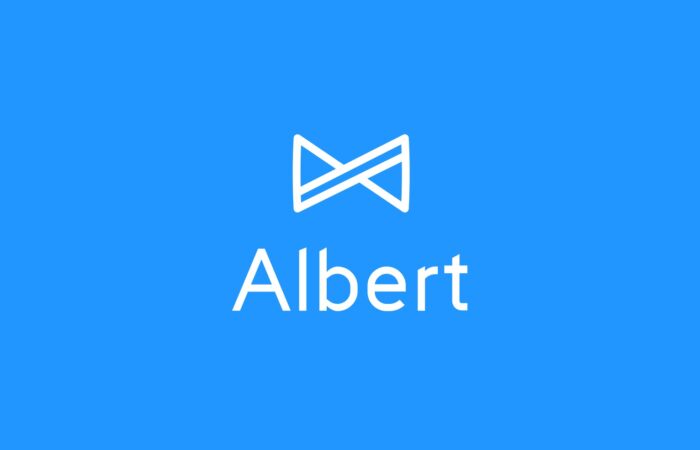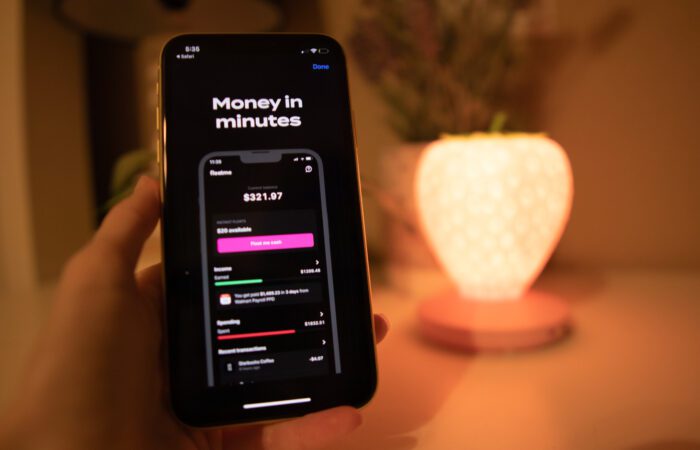Editor’s Note: Overdraft Apps provides detailed product reviews and recommendations based upon extensive research and our own hands-on testing. We may earn a referral fee when you sign up for or purchase products mentioned in this article.
It’s Saturday night and you decide to stop by the mall. You buy a pair of pants, shoes, a hat, and a pair of gloves; all from separate stores. As you’re walking to your car you remember — your account had already overdrawn! Each of those transactions incurred a $17 fee, causing your shopping trip to cost an additional $68.
An overdraft occurs when you spend more money than your bank account has, resulting in a negative balance. If you’re a customer of Arvest Bank, it’s important to know its overdraft policies and what you can do to avoid these costly fees.


Why have 14 million people ditched their high-fee bank for Chime?
Arvest Bank’s overdraft fees are $17. While this is less than half of the national average of $35, Arvest earns more profit from overdraft fees than nearly every other bank in America! (The winner? 1st Convenience Bank)
The good news is that you can avoid these fees by setting up text alerts when your balance is low or by downloading Arvest Bank’s mobile app and setting up alerts through it. You can alternatively access the cash you need by linking a savings account to your checking.
Get familiar with Arvest Bank’s overdraft limit, fees and overdraft policies to know how you can avoid shelling out hundreds of dollars per year (or more!) in punitive overdraft fees.
| Fee | Cost | Maximum Daily Overdrafts | Maximum Daily Cost |
|---|---|---|---|
| Arvest Bank Overdraft Fee | $17 | 4 | $68 |
| Arvest Bank Insufficient Funds Fee | $17 | 4 | $68 |
| Arvest Bank Linked Account Transfer Fee | No fee | 6 transfers per month | No cost |
What is Arvest Bank’s overdraft policy?
Arvest Bank has a straightforward overdraft policy. They offer four overdraft options to select from: SafetyLink, Basic Overdraft Coverage, Extended Overdraft Coverage, or No Overdraft Coverage. You can change your overdraft coverage option at any time by contacting the bank.
SafetyLink is a free feature Arvest Bank offers to help customers avoid overdraft fees by transferring money automatically from a linked account when their checking is overdrawn. While it is a free feature, you will incur fees if you move funds six times within one monthly cycle.
Basic Overdraft Coverage is the default option for all customers. Through this option, the bank will generally cover overdrafts for checks, automatic bill payments, or other recurring debit card or ACH transactions. You will not be able to use your debit card for most purchases or access cash from an ATM if your account is overdrawn.
Extended Overdraft Coverage covers everything Basic does, plus enables you to overdraft with your debit card and withdraw cash from an ATM.
If you elect No Overdraft Coverage, the bank will generally return items when your balance can’t cover them, but they may pay them at their discretion. If you are in good standing with the bank, having no outstanding debts and recurring deposits, they will generally be more likely to pay those overdrafts. Also, smaller transactions are more likely to be approved than larger transactions.

How Much Are Arvest Bank’s overdraft fees?
Arvest Bank charges $17 per overdraft transaction. Unlike many other banks, Arvest does not have a minimum threshold for overdraft fees – take your account negative by just a buck and you’ll face a $17. Additionally, Arvest does not provide a grace period to bring your account balance back to into positive territory to reverse fee, which is an increasingly popular feature offered by Citizens Bank, PNC and other banks.
They provide Basic Overdraft Coverage on most checking accounts, which usually becomes active between 30 and 120 days from when you open your account or request it. (If you open a new account, you won’t be able to overdraft right away.). Arvest Bank will charge overdraft fees on up to four transactions per day, even if they pay more than four overdraft transactions. That means that the maximum amount they will charge you in overdraft fees in a single day is $68.
For example, if you have a balance of negative $10 and make four separate transactions of $5, your balance will be negative $98. Negative $10 to begin, minus $20 for each of the $5 transactions, and minus $68 for the four $17 overdraft fees.
This limit extends to all of their overdraft options. You are responsible for bringing your account back into the green, even if you don’t have overdraft coverage. Arvest Bank maintains that if your account remains negative for an extended period of time they may remove your overdraft coverage or close your account.
If they return an item, they won’t charge you any fees, but the merchant might.
WAIT! High overdraft fees aren't the only way Arvest Bank is costing you money.
With inflation overheating, you've probably heard that interest rates are climbing sharply. That means that for the first time in years, it's a great time to shop around for a high interest savings account.
Arvest Bank savings accounts currently pay just 0.25% APY1 as of 12/8/22. That means that if you have $2,500 in a savings account, you'd earn just $6.26 after one year! Move those hard-earned savings to an FDIC-insured bank paying 3.50% APY and you'd earn $87.49 after one year, and some banks now pay even higher rates!
Don't let your hard-earned savings sit there doing next to nothing. Check out the rates that you can earn at other banks:
What is Arvest Bank’s overdraft limit?
Like most banks, Arvest Bank pays overdrafts at their sole discretion. Unfortunately, Arvest doesn’t disclose their overdraft limit to customers so it’s anyone’s guess as to what it is.
What customers can influence is their standing with the bank; one of Arvest’s key factors when choosing to approve or deny an overdraft. The bank will also look at any recurring deposits, your average balance, and account history when making their decision. Finally, Arvest Bank will look at the dollar amount of the transaction — the smaller it is, the more likely the transaction is to be approved.
Can you get an Arvest Bank overdraft fee waived?
Most banks will tell you they aren’t willing to refund overdraft fees, but some customers have found ways to get their money back. Arvest refunded $5 million of overdraft fees in 2020!
While banks used to be strict in their fee scheduling, public opinion is beginning to shift, causing banks to become much more lenient and forgiving. They may refund an overdraft fee, but only for the right customer. If you have a history of recurring deposits, a strong average balance, and no outstanding debts, Arvest Bank may be willing to refund up to one fee per year.
Refunding an overdraft fee is a gesture of goodwill and Arvest Bank is by no means required to do so. They don’t state outright that they’re willing to forgive an overdraft fee, but customers can try by reaching out to their customer service line.
How to avoid overdraft fees with Arvest Bank
Overdraft fees are completely avoidable. There are a couple of key steps you can take to make sure they never come as a surprise:
- Set up low balance alerts: When your balance reaches a certain number, or goes beneath it, you can receive an alert. This can be through text or through the bank’s mobile app. Either way, a notification can make the difference when trying to save $17 in overdraft fees.
- Consider enrolling in Arvest Bank’s No Overdraft Coverage: No Overdraft Coverage still means the bank will pay some of your overdrafts, but they will pay less through this overdraft option compared to the others. Sure, some of your transactions will be declined, but you may save a lot in fees.
- Enroll in Arvest Bank’s SafetyLink Program: By linking a savings or money market account, you can ensure your overdrafts will be covered before fees are charged. This program is completely free too, and Arvest Bank will transfer the funds automatically.
- Switch to a bank with no overdraft fees: Chime’s SpotMe® service allows you to make debit card purchases or ATM withdrawals that overdraw your account with no overdraft fees. This lets you withdraw from a negative account without the constant fees and charges imposed by banks. Limits start at $20 and can be increased up to $200.
Watch: Avoid overdraft fees with Arvest account alerts
- FloatMe Review – Simple $50 Cash Advances with Low Fees - April 17, 2024
- MoneyLion App Review: Save, Invest & Borrow up to $1,000 in One Simple App - April 15, 2024
- Brigit App Review – Fast $250 Cash Advances with No Interest or Late Fees - April 10, 2024
- Chime SpotMe is an optional, no fee service that requires a single deposit of $200 or more in qualifying direct deposits to the Chime Checking Account each month and Visa debit card activation. All qualifying members will be allowed to overdraw their account up to $20 on debit card purchases and cash withdrawals initially, but may be later eligible for a higher limit of up to $200 or more based on member's Chime Account history, direct deposit frequency and amount, spending activity and other risk-based factors. Your limit will be displayed to you within the Chime mobile app. You will receive notice of any changes to your limit. Your limit may change at any time, at Chime's discretion. Although there are no overdraft fees, there may be out-of-network or third party fees associated with ATM transactions. SpotMe won't cover non-debit card transactions, including ACH transfers, Pay Anyone transfers, or Chime Checkbook transactions. See terms and conditions.
- Early access to direct deposit funds depends on the timing of the submission of the payment file from the payer. We generally make these funds available on the day the payment file is received, which may be up to 2 days earlier than the scheduled payment date.



